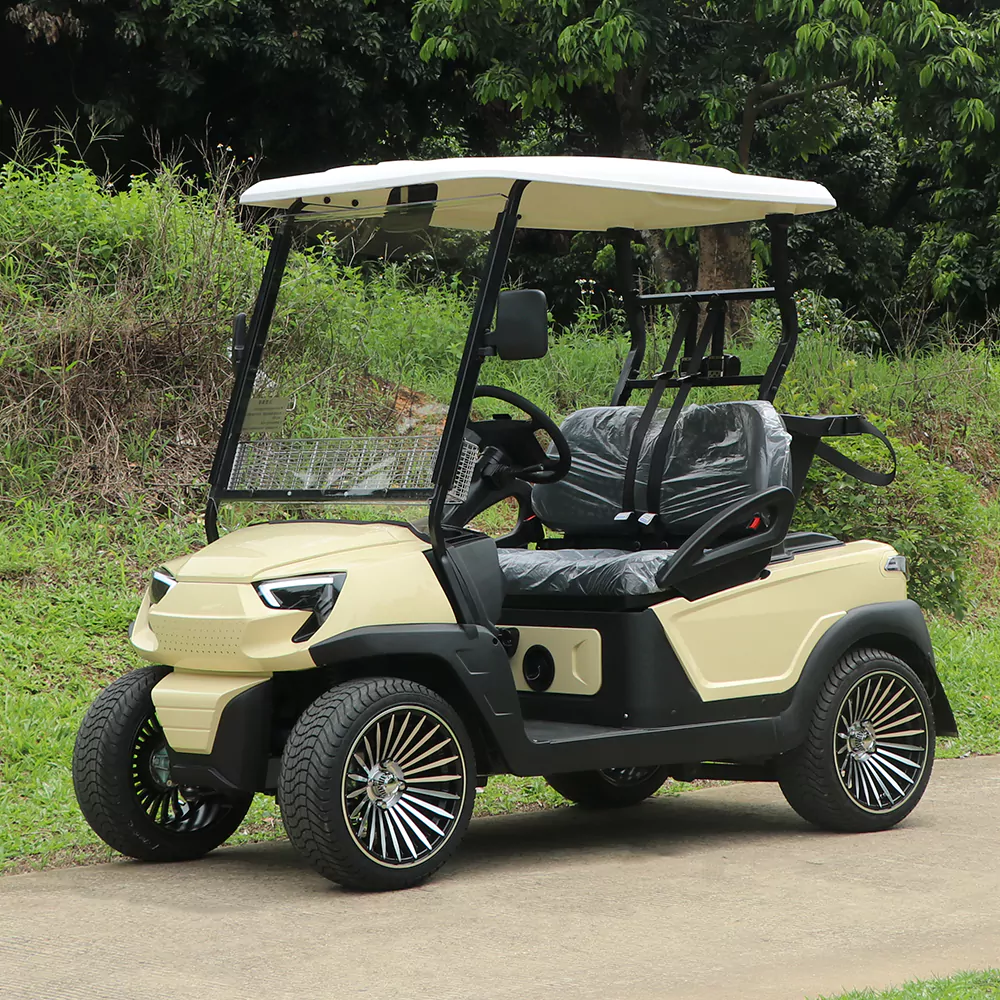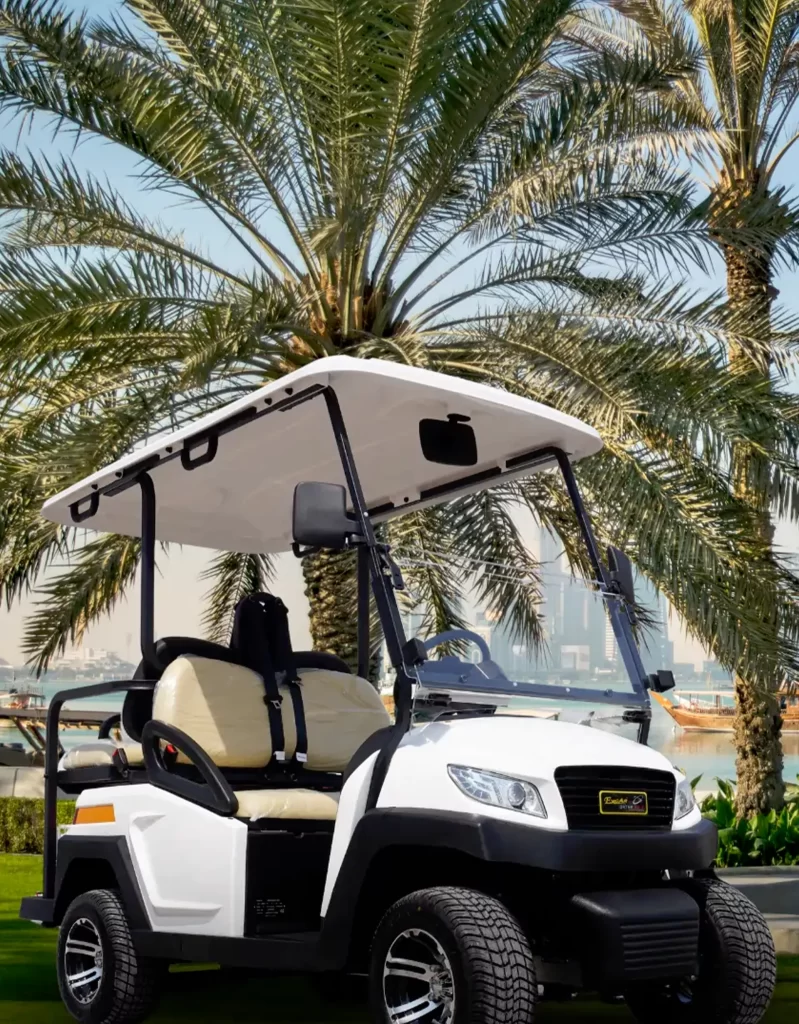As law enforcement agencies seek more sustainable and efficient solutions, electric patrol cars are emerging as a promising alternative to traditional gasoline-powered vehicles. With concerns about carbon emissions, fuel costs, and the need for improved operational efficiency, electric patrol cars offer several advantages, including reduced environmental impact, lower maintenance requirements, and enhanced performance.
In this article, we’ll explore how electric patrol cars are transforming law enforcement and why they may be the future of efficient, eco-friendly policing.
What are Patrol Cars and Why Are They Essential?
Patrol cars, also known as police cars or squad cars, are specially designed vehicles used by law enforcement agencies to ensure public safety, respond to emergencies, and patrol designated areas. These vehicles are equipped with essential tools such as communication systems, sirens, lights, and storage compartments for law enforcement equipment.

Patrol cars play a critical role in maintaining order, preventing crime, and assisting in various situations, from routine patrols to rapid response during emergencies.
Evolution of Patrol Cars:
The evolution of patrol cars has been shaped by advancements in technology, safety, and efficiency. Traditionally, police vehicles relied on internal combustion engines powered by gasoline or diesel. However, with increasing environmental concerns and the demand for more sustainable solutions, electric patrol cars have emerged as a viable alternative.
Modern patrol cars now feature enhanced safety systems, improved performance, and better fuel efficiency, adapting to the evolving needs of law enforcement agencies worldwide.
What Types of Patrol Cars Are Available?
Patrol cars come in various forms, designed to meet the specific needs of law enforcement agencies depending on the type of tasks they are intended to perform. From standard models to specialized vehicles, each type offers distinct features and benefits tailored to different operational requirements.
1. Standard Patrol Cars vs. Specialized Patrol Vehicles
Standard patrol cars are the most common type, typically based on models like sedans or SUVs, equipped with essential law enforcement tools such as radios, sirens, and storage space. They are versatile and suited for general-purpose use, including routine patrols and community policing.
Specialized patrol vehicles, on the other hand, are designed for specific tasks such as off-road capabilities, heightened durability, or increased cargo space. These include vehicles like K9 units, all-terrain vehicles (ATVs), or mobile command units, each tailored to particular operational needs.
2. Differences Between Traditional Gas-Powered and Electric Patrol Cars
Traditional patrol cars are powered by internal combustion engines that run on gasoline or diesel, offering high performance and long-range capabilities. However, they come with higher fuel and maintenance costs and contribute to environmental pollution.
Electric patrol cars, on the other hand, are powered by batteries, producing zero emissions and offering reduced operating costs due to lower fuel consumption and fewer maintenance requirements. They provide quieter operation and a more sustainable option for law enforcement agencies looking to reduce their carbon footprint.

3. Advantages of Custom Patrol Cars Tailored to Specific Needs
Custom patrol cars provide flexibility by allowing agencies to modify their vehicles based on specific operational demands. These customizations can include specialized equipment such as ballistic protection, off-road tires, communication systems, or energy-efficient electric drivetrains. Custom patrol cars enhance performance, safety, and efficiency, ensuring that law enforcement agencies are well-equipped to handle diverse challenges.
What Features Should You Look for in a Patrol Car?
When selecting a patrol car, several key features play a crucial role in ensuring the vehicle meets the demands of law enforcement operations efficiently and safely.
1. Engine Performance and Fuel Efficiency:
A patrol car’s engine performance is vital for quick acceleration, high-speed pursuits, and reliable performance during extended use. Choosing a vehicle with a powerful engine ensures the car can handle various terrains and challenging situations. Additionally, fuel efficiency reduces operational costs, especially for agencies with large vehicle fleets, helping to minimize fuel expenses and lower the environmental impact.
2. Safety Features (Braking Systems, Stability Control, and Visibility):
Safety is paramount in patrol vehicles. Look for advanced safety features such as anti-lock braking systems (ABS), stability control, and traction control systems that improve vehicle stability during high-speed maneuvers or on uneven terrains. Visibility-enhancing features like powerful lighting systems, rearview cameras, and blind-spot detection further ensure the safety of both officers and the public.
3. Communication Systems and Technology Integration:
Modern patrol cars must be equipped with advanced communication systems, including radios, GPS, and onboard computers that allow seamless communication between officers and dispatch centers. Technology integration, such as touchscreen control systems, data management software, and cloud connectivity, enhances situational awareness, improves decision-making, and streamlines operations.
4. Comfort and Ergonomic Design for Extended Use:
Patrol officers often spend long hours in their vehicles, so comfort and ergonomic design are crucial for reducing fatigue. Features like adjustable seating, climate control, and sufficient storage space ensure officers remain focused and alert during extended shifts, improving overall efficiency and performance.
What Are the Benefits of High-Quality Patrol Cars?
High-quality patrol cars offer numerous advantages that contribute to the efficiency, safety, and overall effectiveness of law enforcement operations. Read on to know unique benefits of top-quality patrol cars:

1. Increased Reliability and Durability:
High-quality patrol cars are built to withstand the demanding conditions of law enforcement. With robust construction, durable materials, and advanced engineering, these vehicles provide greater reliability, ensuring they perform consistently over the long term. This reduces the likelihood of breakdowns, ensuring officers can stay on the road when they are needed most.
2. Reduced Maintenance and Repair Costs:
Investing in high-quality patrol cars helps minimize maintenance and repair costs. Well-designed patrol vehicles are equipped with reliable engines, advanced braking systems, and durable components that require less frequent servicing. Electric patrol cars, in particular, offer reduced maintenance costs due to fewer moving parts and simpler drivetrains.
3. Enhanced Performance and Efficiency in Various Environments:
High-quality patrol cars are engineered to deliver superior performance, whether on urban streets, highways, or off-road terrains. These vehicles offer better acceleration, handling, and stability, ensuring officers can respond quickly and efficiently to emergencies. Advanced features like all-wheel drive or off-road capabilities enhance the car’s performance in diverse environments.
4. Improved Safety and Comfort for Officers:
Safety is a top priority in patrol cars. High-quality patrol vehicles are equipped with advanced safety features such as anti-lock braking systems, stability control, and visibility enhancements. Additionally, ergonomic design and comfort features like climate control and adjustable seating reduce officer fatigue, improving performance and focus during long shifts.
What Role Does Manufacturer Experience Play in Patrol Car Quality?
The manufacturer’s experience plays a crucial role in determining the quality and performance of patrol cars. Established manufacturers with years of expertise understand the unique demands of law enforcement and are equipped to design vehicles that meet those specific needs.
Experienced manufacturers focus on advanced engineering, durable materials, and robust construction, ensuring that their patrol cars are reliable and capable of withstanding the rigorous conditions faced by law enforcement officers. They are also more likely to integrate cutting-edge safety features, improved fuel efficiency, and enhanced technology into their patrol vehicles.
By drawing on years of industry knowledge, these manufacturers can deliver patrol cars that offer superior performance, reduced maintenance costs, and greater overall durability, contributing to safer and more efficient law enforcement operations.
How Can Patrol Cars Be Customized for Specific Operational Needs?
Patrol cars can be customized to meet specific operational needs, ensuring they are tailored to the unique requirements of law enforcement agencies. Customization options include adding specialized equipment such as light bars, sirens, and communication systems to enhance visibility and ensure seamless communication during emergencies.
Agencies may also opt for custom storage solutions, ballistic protection, or specialized compartments for equipment like firearms, first aid kits, or surveillance gear. Additionally, features like reinforced suspensions and off-road capabilities can be integrated to improve performance on challenging terrains.
By customizing patrol cars, agencies can ensure that their vehicles are equipped to handle various operational demands, enhancing both safety and efficiency during patrols, high-speed pursuits, and other law enforcement activities.

What Industries Benefit from Using Patrol Cars?
Patrol cars are essential for several industries that rely on effective law enforcement and security operations. The key industries that benefit from using patrol cars includes the following:
- Law Enforcement Agencies
- Security Firms
- Military and Defense
- Public Transportation Authorities
- Airport Security and Operations
- Private Security Contractors
- Event Management and Crowd Control
- Border Control and Customs Enforcement
- Municipalities and Local Governments
- Commercial and Industrial Facilities
Each of these industries relies on patrol cars to maintain safety, enforce regulations, and ensure the smooth operation of their specific environments.
Conclusion:
No doubt, patrol cars play a vital role in various industries, from law enforcement and security to public transportation and military operations. The ability to customize patrol cars to meet specific operational needs ensures that agencies have reliable, efficient, and safe vehicles suited for diverse environments. Whether it’s enhancing performance, safety, or operational efficiency, high-quality patrol cars are essential for maintaining security and responding effectively to emergencies.
For law enforcement agencies and organizations looking to invest in top-tier patrol cars, Qatar Golf International is your trusted partner. With over 20 years of experience in manufacturing high-quality patrol cars, we offer customized solutions tailored to your specific needs. Contact Qatar Golf International today to get a personalized quote and explore the best options for your patrol vehicle requirements.

